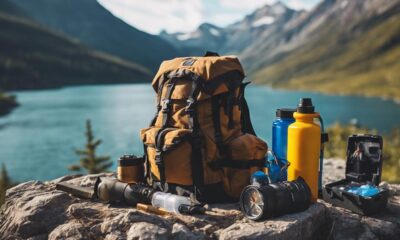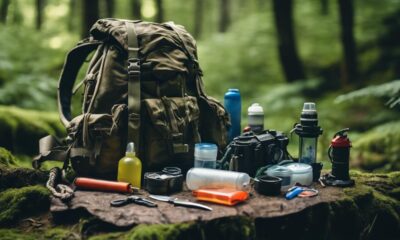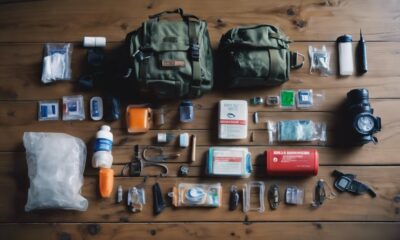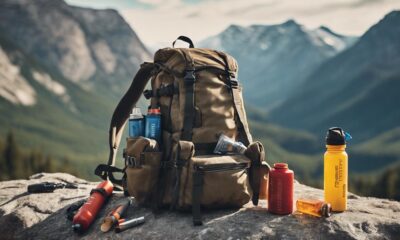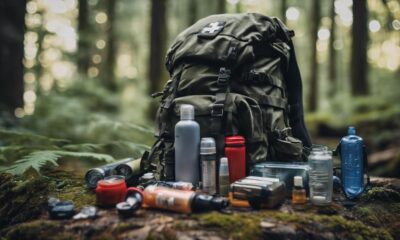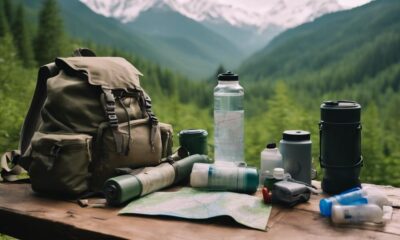Survivalism
Who Are Preppers? Understanding the Survivalist Movement!
Navigate the intriguing world of preppers, a diverse survivalist movement rooted in self-sufficiency and preparedness, and uncover their unique motivations and strategies.
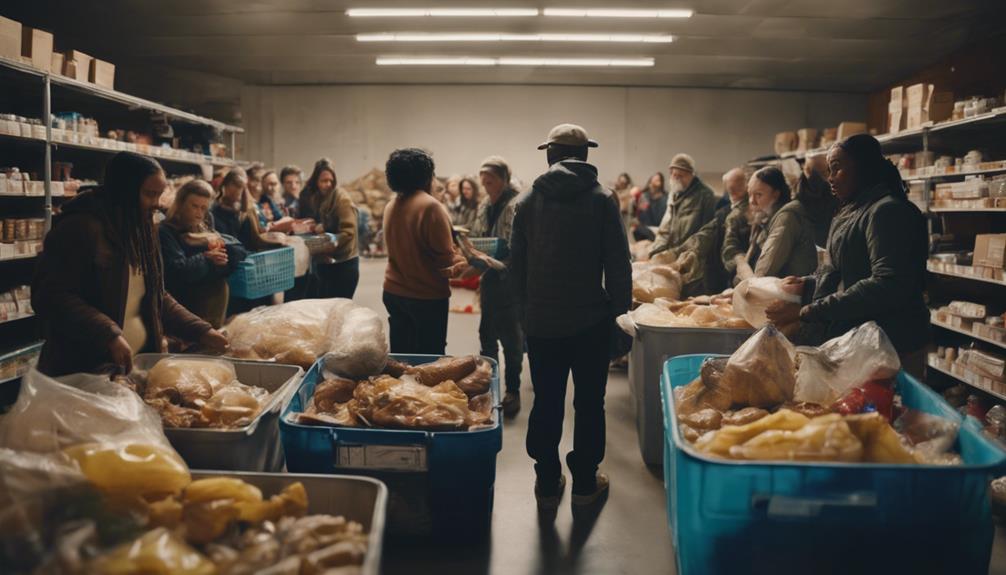
Ever thought about who preppers are? They're folks ready for any situation, focusing on being self-sufficient and prepared. Rooted in historical events like the Cold War and Great Depression, preppers distrust government resources and plan for societal breakdown. Communities of diverse backgrounds come together, sharing skills like self-defense and sustainable living. Bug-in, bug-out, and homesteading techniques form their strategies. With one-third of US adults identifying as preppers, the movement is expanding globally. If you want to uncover more about their motivations, community dynamics, and safety priorities, you'll find a fascinating world waiting for you.
Key Takeaways
- Preppers are individuals who actively prepare for emergencies and disasters.
- They prioritize self-sufficiency, survival skills, and resource stockpiling.
- Preppers come from diverse backgrounds and ages.
- The survivalist movement emphasizes readiness, community support, and cooperation.
- Motivated by concerns about societal breakdown, natural disasters, or personal safety.
Origins of Prepping
During the Cold War era and the Great Depression, the origins of prepping emerged from historical roots emphasizing the importance of preparedness. Survivalist movements, fueled by concerns about nuclear threats, government policies, and economic instability, gained traction in the 1930s to 1950s.
The LDS Church played a significant role during the Cold War by advising its members on food storage, contributing to the culture of preparedness. Individuals began preparing for survival more actively in the 1960s, prompted by inflation, urban vulnerabilities, and fears of societal collapse.
Seminars on survival strategies during potential monetary collapses began in 1967, reflecting the growing interest in prepping. These historical events and movements laid the groundwork for modern-day prepping practices, highlighting the importance of being self-sufficient and ready for unforeseen circumstances.
The lessons learned from past crises continue to shape the mindset of preppers today, emphasizing the value of preparedness in an uncertain world.
Motivations Behind Prepping

The motivations behind prepping stem from a combination of distrust in government resources, concerns about societal breakdown, and personal experiences that drive individuals to prioritize preparedness for unforeseen emergencies. Many preppers feel a lack of confidence in the ability of government agencies to effectively respond to crises, leading them to take matters into their own hands.
Upbringing and past personal experiences also heavily influence individuals to start prepping, as exposure to emergencies or disasters can highlight the importance of being prepared. The core motivation for preppers is being ready for any emergency situation that may arise, whether it be a natural disaster, social unrest, or a pandemic.
Prepper Community Diversity

You'll explore the dynamics within the prepper community, where individuals from diverse backgrounds come together to share survival strategies and preparedness approaches.
From urban dwellers to rural homesteaders, preppers showcase a wide range of tactics aimed at ensuring self-reliance in times of crisis.
Understanding these varied approaches will provide insight into the resilience and adaptability of the prepper community.
Prepper Group Dynamics
Within the prepper community, diversity shines through in the various backgrounds, ages, and professions of its members. Preppers often gather at survivalist retreats, in online forums, local meetups, and social media groups to exchange knowledge and resources.
Community dynamics play an essential role in prepper groups, where individuals of all experience levels, from beginners to seasoned experts in survival skills, come together to collaborate on preparedness plans. These tight-knit networks foster a sense of camaraderie and mutual support among members.
The shared commitment to being self-sufficient in emergencies unites preppers in their goal of readiness. Whether sharing tips for survival scenarios or pooling resources for group preparedness, prepper group dynamics emphasize cooperation and collective resilience.
This collaborative spirit allows preppers to learn from one another, strengthen their readiness strategies, and build a supportive community that thrives on shared values of self-reliance and preparedness.
Varied Survival Strategies
Prepper community diversity manifests in the varied survival strategies members employ, encompassing bug-in, bug-out, and homesteading approaches. Bug-in strategies involve fortifying one's home with supplies and security measures to ride out emergencies without leaving. Bug-out preppers prioritize mobility and preparedness to evacuate quickly to a safe location in the event of a crisis. Homesteading preppers emphasize sustainable living practices such as gardening, raising livestock, and renewable energy sources.
| Survival Strategy | Description |
|---|---|
| Bug-In | Focuses on fortifying homes for emergencies |
| Bug-Out | Prioritizes mobility for quick evacuation |
| Homesteading | Emphasizes sustainable living practices |
Diverse Preparedness Approaches
The prepper community's diverse preparedness approaches reflect a wide array of motivations and experiences. Some preppers prioritize self-reliance, focusing on developing skills that would allow them to survive independently in various scenarios.
Others concentrate on honing survival skills, such as foraging or shelter-building, to navigate unfamiliar or hostile environments. Additionally, certain preppers place a significant emphasis on stockpiling resources like food, water, and medical supplies to guarantee they've the necessary provisions during times of crisis.
This variety of approaches within the prepper community stems from individual beliefs and concerns, shaping how each person prepares for potential emergencies. Factors like geographical location, family dynamics, and personal beliefs further contribute to the diversity of preparedness strategies among preppers.
From creating bug-out bags for quick evacuation to establishing off-grid homesteads for long-term self-sufficiency, preppers engage in a spectrum of activities tailored to their unique approach to survival readiness.
Practical Readiness Strategies

Get ready to bolster your preparedness game with essential supplies checklist, emergency plan basics, and self-defense techniques.
These practical readiness strategies are essential for managing crisis situations with confidence and resilience.
Let's equip you with the tools and knowledge needed to enhance your readiness skills.
Essential Supplies Checklist
Prioritizing practical preparedness, ensuring you have the essential supplies is important for ensuring your readiness in emergency situations. When preparing, make sure to include a well-stocked first aid kit containing bandages, medications, and supplies for treating injuries.
Head to the local grocery store to gather non-perishable food items, water, and hygiene products to sustain yourself during crises. Additionally, consider communication tools like radios, flashlights, batteries, and solar chargers to stay connected with others.
Survival gear such as fire starters, multi-tools, tents, sleeping bags, and protective clothing are essential for shelter and safety. Don't forget to keep important documents, cash, and personal identification in waterproof containers for quick access when needed.
For added security, some preppers include tools for self-defense like pepper spray, firearms, and ammunition in their essential supplies checklist. By being well-prepared with these supplies, you can increase your chances of staying safe and secure during emergencies.
Emergency Plan Basics
To guarantee your preparedness extends beyond supplies, focus on mastering the basics of creating and executing an effective emergency plan. Start by outlining detailed evacuation routes with multiple options in case primary routes are compromised.
Confirm that your emergency kit includes at least three days' worth of water, non-perishable food, first aid supplies, medications, and essential tools. Establish communication plans by designating meeting points for family members if separated during an emergency.
Regularly practice drills and review your emergency plan to maintain readiness for potential crises. Familiarize yourself with how to use the supplies in your kit and update them as needed.
Self-Defense Techniques
Mastering self-defense techniques is imperative for preppers to guarantee their safety and security in emergency situations. Preppers often learn a variety of self-defense techniques to protect themselves and their supplies.
Here are some essential self-defense strategies preppers focus on:
- Hand-to-Hand Combat: Preppers train in hand-to-hand combat techniques to defend themselves when weapons aren't available or practical.
- Firearms Training: Learning how to safely and effectively use firearms is vital for preppers to protect themselves and their resources.
- Situational Awareness: Developing keen situational awareness skills helps preppers anticipate and respond to potential threats effectively.
Importance of Self-Sufficiency
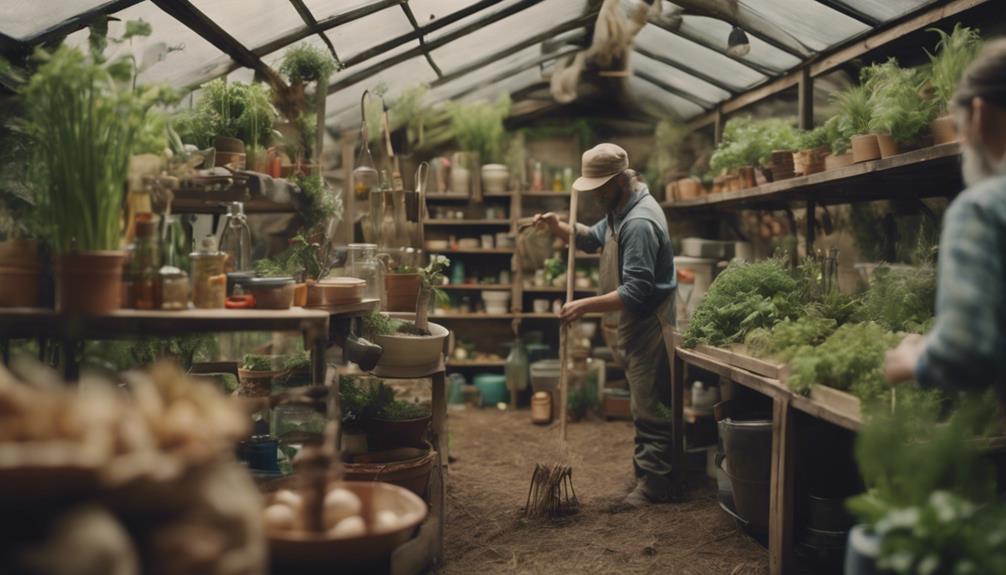
Emphasizing self-sufficiency is a fundamental aspect of prepping for survivalists. Being prepared for emergencies means developing essential skills and reducing reliance on external resources. Here's a breakdown of how self-sufficiency plays an essential role in the prepping world:
| Self-Sufficiency | Emergency | Skills |
|---|---|---|
| Stockpiling food, water, and supplies | Ensuring survival during crises | Acquiring gardening, hunting, and first aid skills |
| Investing in alternative energy sources | Minimizing dependence on external systems | Developing self-reliance |
| Building shelters, bunkers, and retreats | Being prepared for any crisis scenario | Fortifying survival capabilities |
Preppers understand that self-sufficiency is not just a mindset but a way of life. By honing these skills and strategies, they aim to maintain independence and readiness in the face of adversity.
Growth of the Prepper Movement
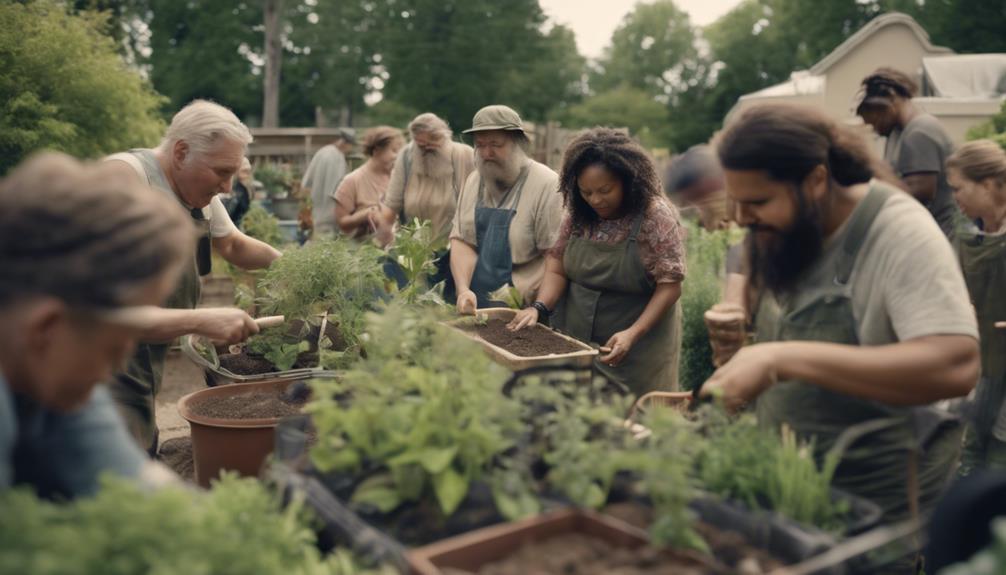
Understanding the growth of the prepper movement sheds light on the increasing number of individuals actively engaging in preparedness activities worldwide. The prepper culture, once considered primarily an American phenomenon, is gaining popularity globally. This surge in interest is evident through various statistics:
- One-third of US adults identify as preppers, contributing to the substantial $11 billion annual expenditure on prepping activities.
- Gen Z individuals, with 40% identifying as preppers, represent the demographic most inclined towards preparedness.
- FEMA reports a 50% increase in self-reliant individuals from 2017 to 2020, showcasing the rapid growth of the prepper movement.
This shift from a niche hobby to a mainstream lifestyle choice signifies the expanding reach of prepping beyond its initial boundaries. As the movement continues to attract individuals from diverse backgrounds, the perception of preppers is evolving, highlighting the relevance of preparedness in today's uncertain world.
Challenging Stereotypes
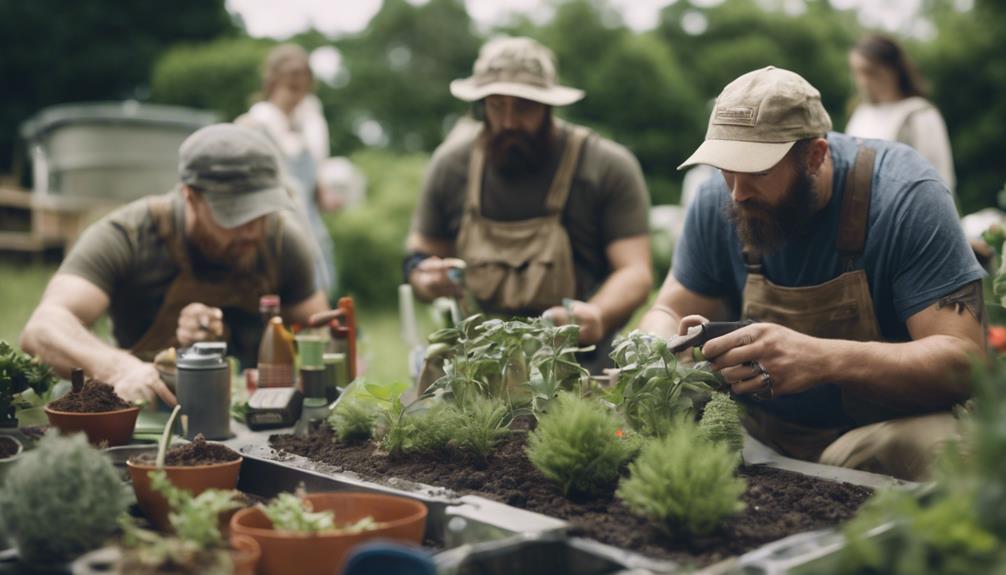
Challenging stereotypes, preppers actively resist being pigeonholed by media portrayals and showcase diverse backgrounds and motivations for their preparedness activities.
Rather than fitting into a single mold, preppers come from various walks of life, bringing unique perspectives and reasons for their preparedness mindset.
Some preppers are driven by concerns about societal breakdown, while others focus on readiness for natural disasters or personal safety.
Each individual's background and experiences greatly influence their decision to engage in prepping, emphasizing the personalized nature of this movement.
Emphasizing Personal Safety

Prioritizing personal safety, preppers actively prepare themselves for emergencies by stocking up on essential supplies and honing self-defense skills. They understand the importance of being ready to protect themselves and their loved ones in any crisis.
To achieve this, preppers focus on:
- Self-Defense Training: Preppers invest time and effort into learning self-defense techniques to defend against potential threats effectively.
- Emergency Communication Devices: Ensuring access to reliable communication tools like radios is essential for staying informed and connected during emergencies.
- Sustainable Self-Sufficiency: Preppers aim to be self-reliant by having the necessary resources to sustain themselves for an extended period without external assistance.
Frequently Asked Questions
Are Preppers and Survivalists the Same?
Preppers and survivalists are similar in their goal of preparing for emergencies. Preppers focus on a broad range of readiness, while survivalists often prepare for extreme scenarios and emphasize living off-grid. Both prioritize self-reliance.
What Is the Philosophy of Preppers?
If you're wondering about the philosophy of preppers, it's all about proactive readiness. They focus on stockpiling essentials, honing survival skills, and crafting solid contingency plans to guarantee safety and well-being during uncertain times.
What State Has the Most Preppers?
In the US, Idaho has the highest percentage of preppers, with 12.6% of the population identifying in this way. Utah follows closely behind with 11.4%. Factors like rural lifestyle and natural disaster risks influence this trend.
What Are the Traditions of Preppers?
When it comes to the traditions of preppers, they revolve around self-reliance, stockpiling supplies, and mastering survival skills. From gardening to building bunkers, preppers prioritize readiness for disasters of all kinds.
What Is the Survivalist Movement and Why Are Preppers a Part of It?
The American preppers top survivalists are individuals dedicated to preparing for potential emergencies, from natural disasters to societal collapse. The survivalist movement emphasizes self-reliance and sustainability, with preppers stockpiling food, water, and supplies, as well as learning essential skills like first aid and gardening for long-term survival.
Conclusion
So, now you know what preppers are all about.
While some may see them as extreme or paranoid, they're just regular people preparing for the unexpected.
Remember, it's better to be safe than sorry.
Who knows, maybe one day you'll thank a prepper for their foresight and readiness.
Stay safe out there!
Survivalism
Essential Soaps for Survival Preparedness
Navigate the essentials of survival preparedness with crucial soaps that ensure hygiene—discover what invaluable options can enhance your emergency stock!

When it comes to survival preparedness, crucial soaps are your best allies. Stock up on bar soaps like Ivory or Irish Spring for versatility and minimal waste. Liquid dish soaps such as Dawn are essential for effective cleaning. Don't forget specialty soaps like Lava for scrubbing tough dirt. Aim for a supply of 10-20 bars to guarantee hygiene during emergencies. Multi-use soaps, like Pure-Castile, simplify your tasks. With the right selection, you not only maintain health but also have valuable barter items. Stay tuned to discover more ways to optimize your soap inventory for emergencies!
Key Takeaways
- Stock a variety of soaps, including bar, liquid, and specialty types, to ensure versatility in hygiene and cleaning tasks during emergencies.
- Maintain an inventory of 10-20 bars of soap to meet personal hygiene and cleaning needs effectively during unexpected situations.
- Consider multi-use products like Pure-Castile Liquid Soap to simplify hygiene routines, covering handwashing, dishwashing, and bathing.
- Regularly check and rotate your soap inventory to prevent shortages and ensure all products remain fresh for use.
- Use soap products as valuable barter items in emergencies, especially specialty soaps that may carry higher trade value.
Soap Types for Survival Kits
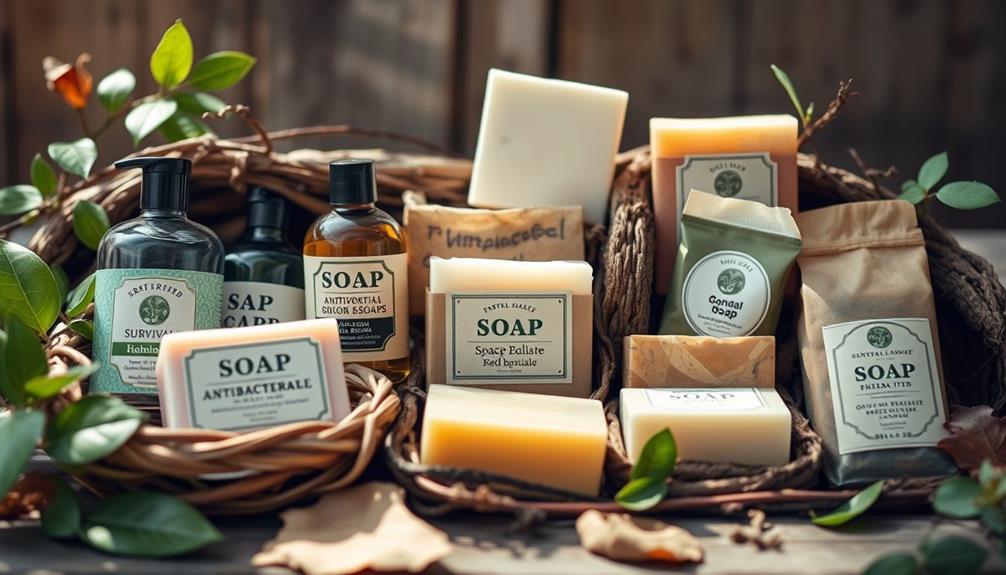
When preparing your survival kit, including a variety of soap types is essential for maintaining hygiene and tackling different cleaning tasks.
Start with bar soap, like Ivory Spring or Irish Spring, since they're versatile and create minimal waste. Liquid soap, such as Dawn Blue, is vital for effective cleaning, especially for dishes and surfaces.
Don't forget specialty soaps like Lava Soap for scrubbing stubborn dirt. Stock up on dish soap in large quantities for kitchen hygiene, and consider powdered laundry soap for flexible washing loads.
Multi-use products like Pure-Castile Liquid Soap can handle handwashing, dishwashing, and bathing, making them invaluable.
Effective Storage Solutions
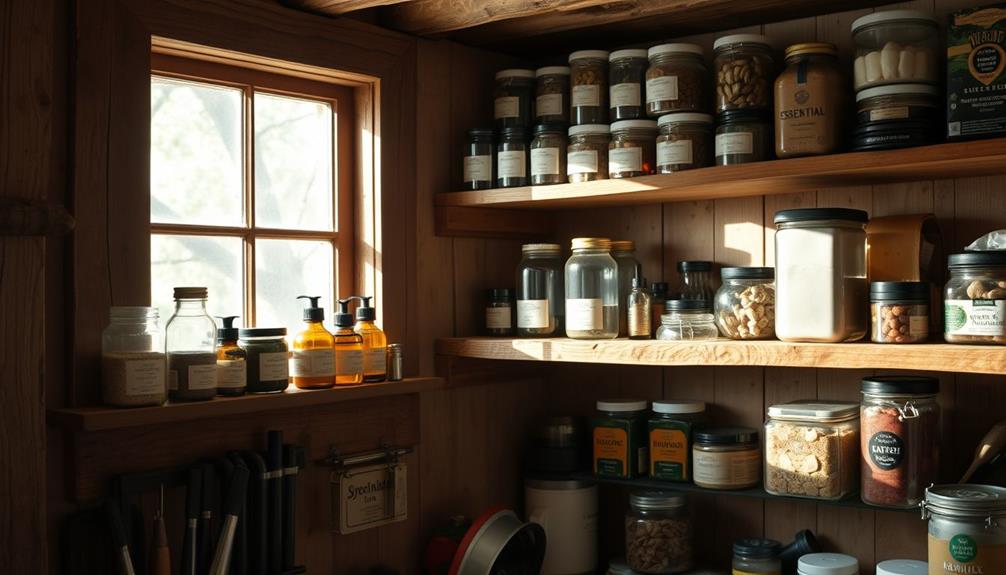
Storing soap properly is just as important as selecting the right types for your survival kit. To prevent moisture and pests, use airtight containers for your soap. This keeps it clean and extends its shelf life.
Aim to keep an inventory of 10-20 bars for personal hygiene and cleaning needs. Diversifying your soap collection helps meet various needs while enhancing bartering opportunities.
Regularly purchase soap during sales or bulk buy items like GoJo hand soap to build your supply economically. Mixing liquid and bar soaps not only adds versatility to your kit but also guarantees you're prepared for different situations.
Regularly check and replenish your inventory to maintain readiness in case of emergencies.
Hygiene and Health Importance
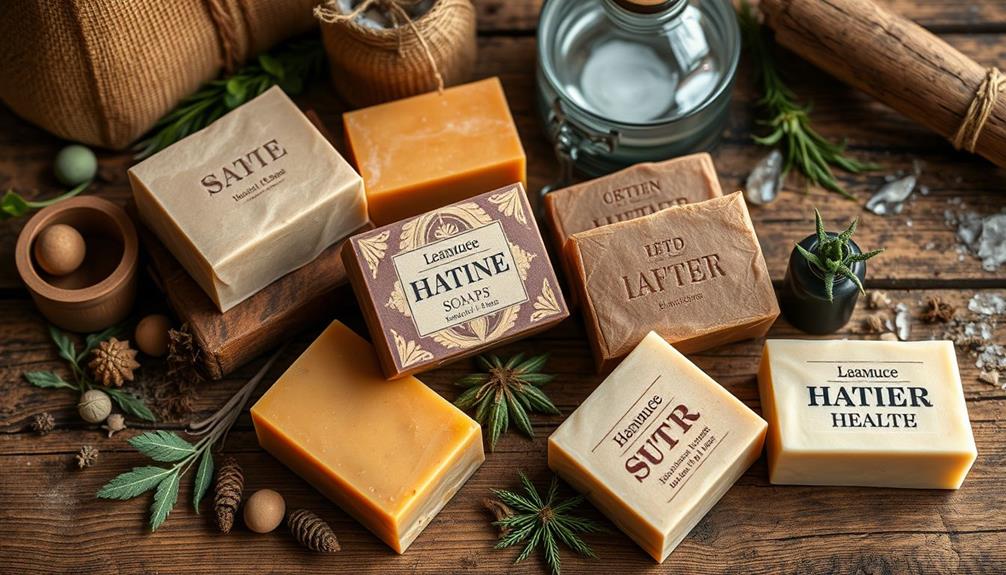
Maintaining hygiene is essential for your health, especially during emergencies. Regular soap use helps prevent skin infections and keeps you healthy when resources are limited.
When you stock both bar and liquid soaps, you greatly reduce the risk of illness, which is vital in survival situations. Using antibacterial soap occasionally is beneficial, but overuse can disrupt your skin's natural bacteria balance.
Multi-use soaps, like Pure-Castile Liquid Soap, can effectively cover various cleaning tasks, simplifying your hygiene routine. By prioritizing cleanliness, you safeguard your well-being and prepare yourself for unexpected challenges.
Making Homemade Soap
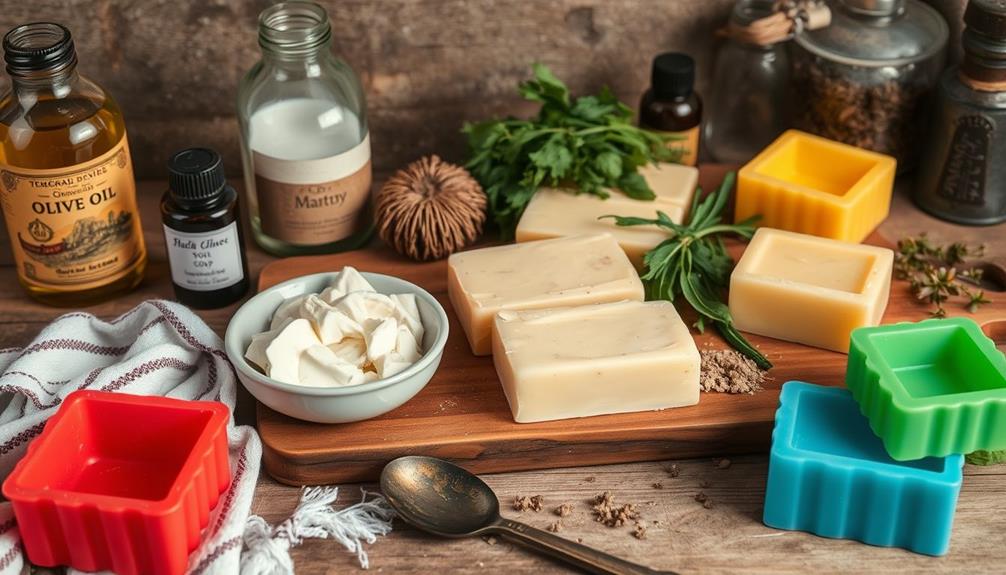
Making homemade soap can be a rewarding and practical way to guarantee you have effective cleaning products on hand.
With just a few ingredients and tools, you can create customized soaps that suit your needs. Here are some essential items you'll need to get started:
- Lye (sodium hydroxide) for saponification
- Oils (like olive oil or coconut oil) for moisturizing properties
- Essential oils for fragrance and therapeutic benefits
- A scale for accurate measurements
- Soap molds for shaping your creations
Custom Emergency Soap Kits
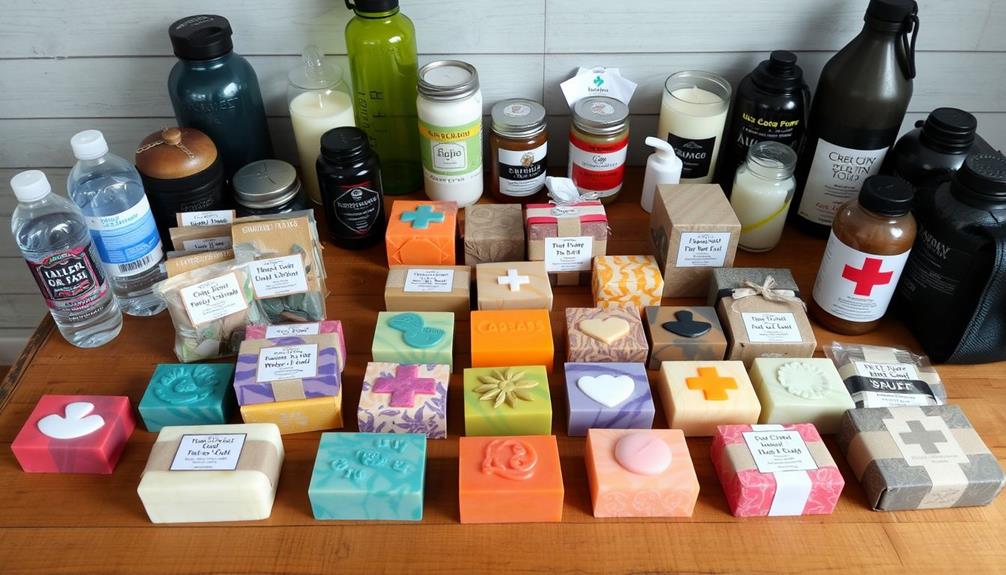
Creating homemade soap opens up the opportunity to tailor your cleaning products for specific needs, and this customization can extend into your emergency preparedness efforts.
By assembling custom emergency soap kits, you can guarantee you have the right soap types on hand. Consider including bar soap for personal hygiene, liquid soap for cleaning, and specialty soaps for tough jobs.
You might want to pack multi-use products like Pure-Castile soap, which can handle various tasks efficiently.
Don't forget to add a few essentials like organic coconut oil for cooking and first aid.
Tailoring your soap kits not only meets your family's unique needs but also keeps you prepared for any situation that arises during emergencies.
Managing Supply Inventory
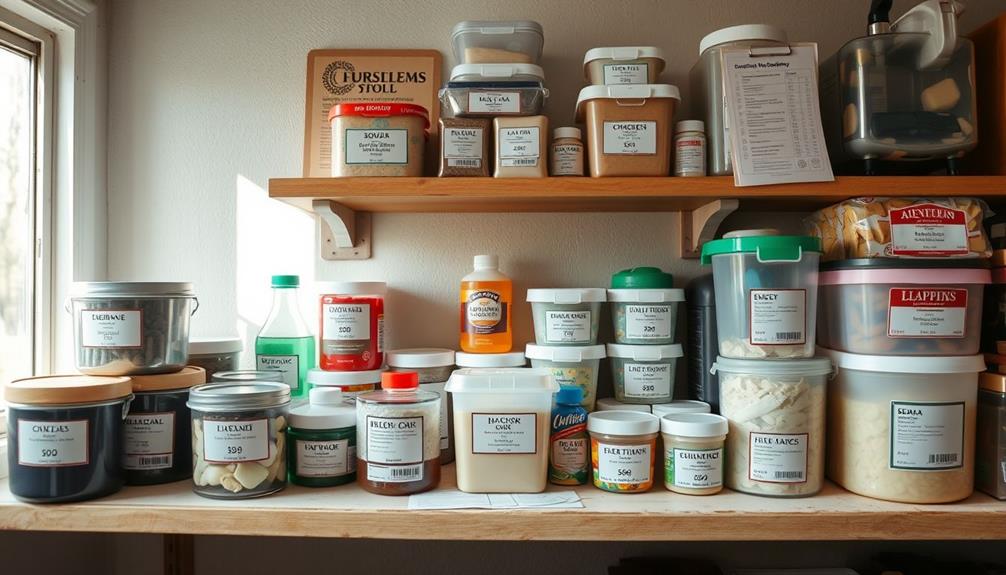
Effective inventory management is essential for ensuring you have the right soap supplies during emergencies. Start by evaluating your current stock and set clear inventory goals.
Aim to keep a diverse range of soap types for various needs. Regularly check your inventory to avoid shortages, especially before potential emergencies.
- Keep at least 10-20 bars of soap for personal hygiene.
- Utilize airtight containers to protect against moisture and pests.
- Purchase soap in bulk during sales to save money.
- Rotate stock to use older products first, maintaining freshness.
- Mix liquid and bar soaps to cover all cleaning tasks effectively.
Bartering With Soap Products
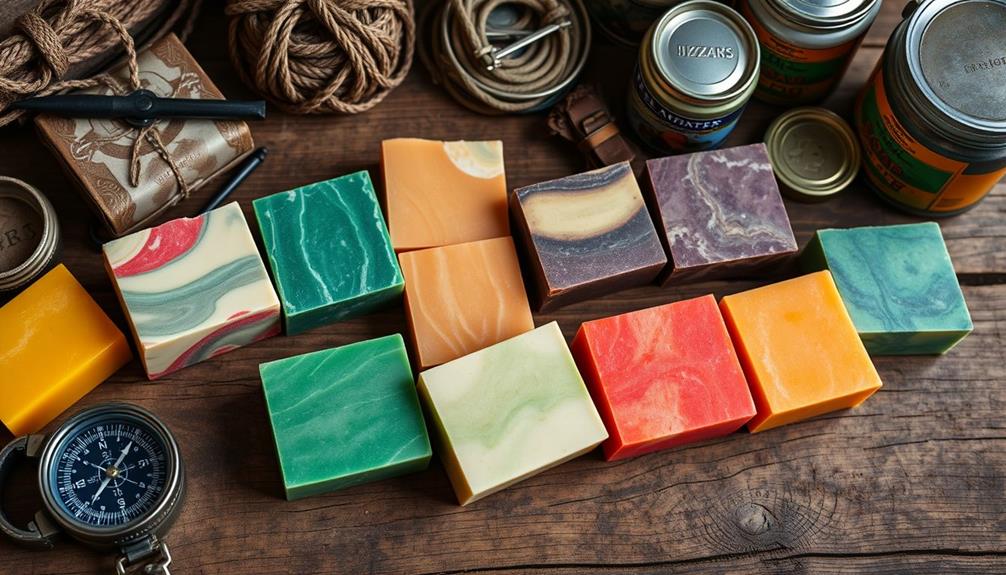
Soap products can serve as valuable bartering items during emergencies, providing a practical means to trade for essential goods and services.
When supplies run low, your stockpile of bar and liquid soaps can become a lifesaver. People need hygiene items, and having extra soap can help you acquire food, water, or medical supplies.
Specialty soaps like Lava or Fels Naptha, which scrub tough dirt, might fetch even more in trade. Don't forget to contemplate multi-use products like Pure-Castile Liquid Soap; their versatility makes them attractive for barter.
Always assess the needs of your community, and be prepared to negotiate. By thinking strategically, you can turn your soap inventory into a powerful tool for survival.
Frequently Asked Questions
How Long Do Different Soaps Last in Storage?
Different soaps can last varying lengths in storage. Bar soap generally lasts several years, while liquid soap has a shorter shelf life, typically around one to three years. Always check for expiration dates and storage conditions.
Can Soap Expire or Lose Effectiveness Over Time?
You might wonder if soap can expire. Surprisingly, it can! Over time, ingredients can degrade, reducing effectiveness. To guarantee maximum cleanliness, regularly check your stock and replace any old or questionable bars or bottles.
What Are the Best Scents for Homemade Soap?
When making homemade soap, consider scents like lavender for relaxation, citrus for brightness, and eucalyptus for a revitalizing aroma. These fragrances not only enhance your soap but also provide calming and uplifting benefits during use.
Are There Any Soap Allergies to Be Aware Of?
Allergies can turn a soothing wash into a painful ordeal. You should watch for common triggers like fragrances, dyes, and specific ingredients. Always test new soaps on a small area to avoid reactions.
How Can I Repurpose Old Soap Scraps Effectively?
You can repurpose old soap scraps by melting them into new bars, using them for DIY laundry detergent, or creating a homemade body scrub. These methods minimize waste while maximizing your soap's utility and effectiveness.
Conclusion
Incorporating a variety of soaps into your survival kit isn't just practical; it's a smart move that enhances your overall safety and well-being. You might think it's an unnecessary expense, but having the right soap on hand can prevent illness and save you in tough situations. Plus, these soaps can even become valuable barter items. So, don't underestimate their importance—stock up, stay clean, and be prepared for whatever life throws your way!
Survivalism
Connect With Local Preppers Today
I discovered exciting ways to connect with local preppers today, and you won’t believe the valuable insights waiting for you.
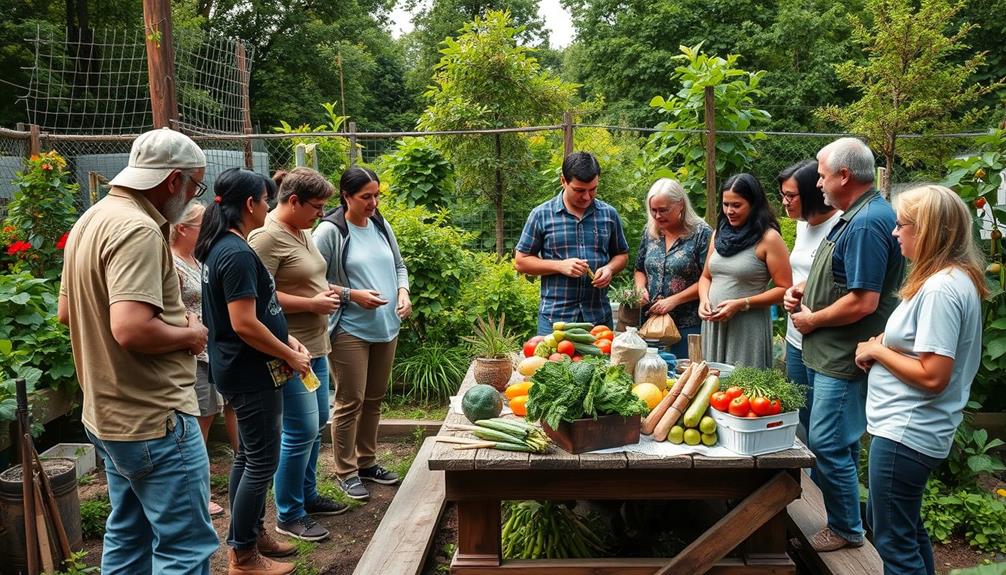
To connect with local preppers today, start by exploring community centers or parks for gatherings. You can also check out online platforms like Facebook groups and local forums where preppers share tips and organize meetups. Attending skill-specific workshops, such as first aid or gardening, helps you network while enhancing your preparedness. Consider volunteering for community projects to meet like-minded individuals. With about 23 million preppers in the U.S., there's no shortage of support. Keep engaging with this vibrant community, and you just might discover the valuable insights waiting for you.
Key Takeaways
- Visit community centers and parks to find local prepping gatherings and events.
- Join social media groups and online forums to connect with fellow preppers and share insights.
- Attend skill-specific workshops to enhance your prepping skills and network with like-minded individuals.
- Participate in local prepper meetups to build relationships and collaborate on survival strategies.
- Utilize online resources like bulletin boards to stay informed about upcoming prepping events in your area.
Understanding the Prepper Mentality
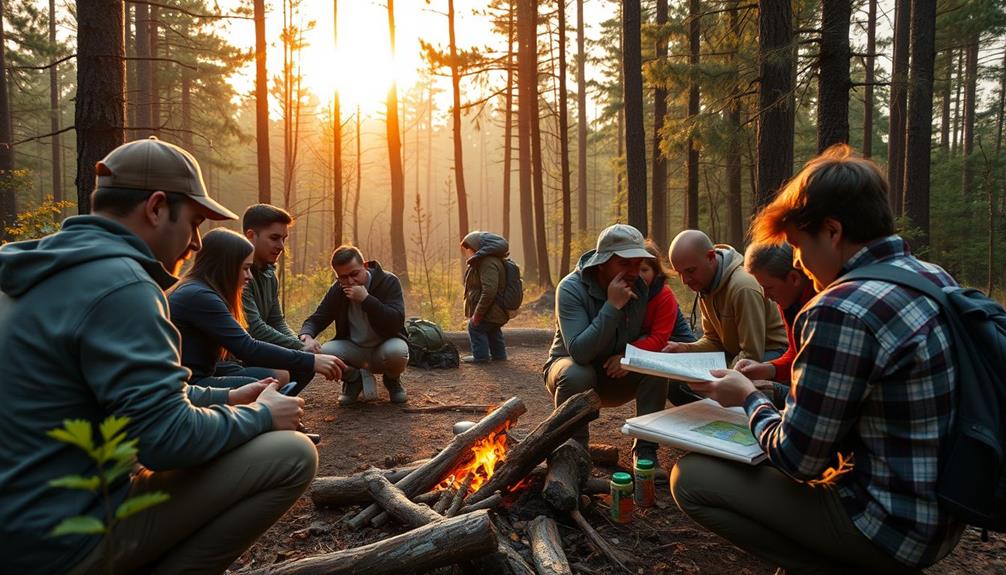
Understanding the prepper mentality starts with recognizing that it's about more than just individual survival; it's about building a community of support and self-reliance.
You'll find that pooling resources and sharing skills greatly enhances your chances of facing challenges together. Instead of relying solely on yourself, you can leverage group dynamics, gaining advantages that solitary survival simply can't provide.
Collaboration doesn't diminish your personal skills; rather, it enriches them. By learning from others and sharing your experiences, you improve your overall preparedness.
This mindset fosters a sense of belonging and encourages proactive measures. Embracing this mentality can empower you to face uncertainties with confidence, knowing you have a supportive network behind you, ready to tackle any situation that arises.
Identifying Local Prepping Gatherings
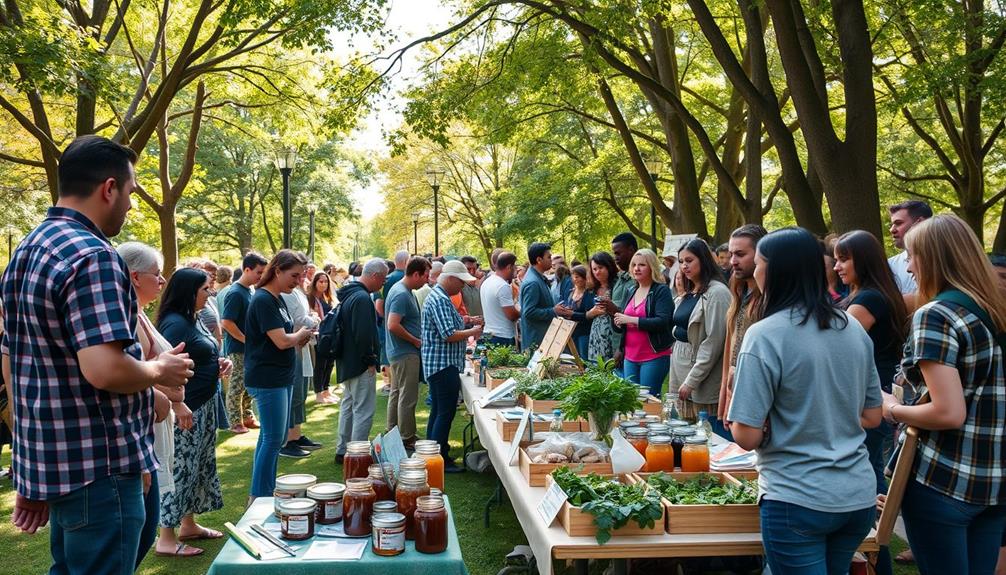
Local prepping gatherings regularly provide excellent opportunities for you to connect with fellow preppers and enhance your knowledge.
To identify these gatherings, focus on a few key strategies:
- Explore Local Venues: Check community centers, parks, and libraries for workshops and meetups centered around prepping skills.
- Utilize Online Resources: Browse bulletin boards, local Facebook groups, and platforms like Meetup to find upcoming events tailored to your interests.
- Engage in Skill-Specific Workshops: Look for gatherings that focus on essential skills like gardening, first aid, or self-defense, as these can expand your knowledge while connecting you with like-minded individuals.
Connecting With Preppers Online
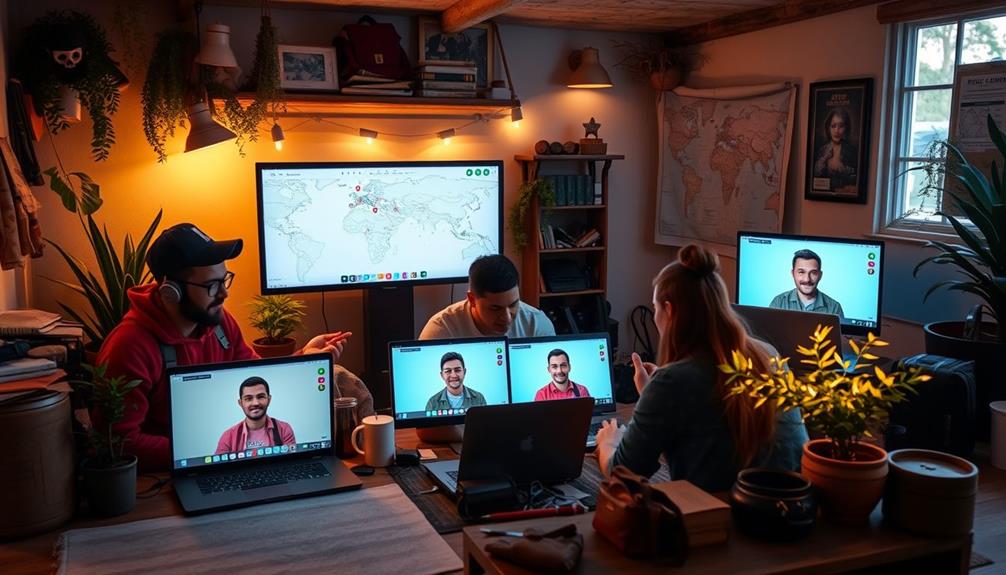
Connecting with fellow preppers online opens up a wealth of resources and support that can greatly enhance your preparedness journey.
With around 23 million preppers in the U.S., you'll find a vibrant community enthusiastic to share knowledge and experiences.
Join social media groups focused on prepping to exchange tips, strategies, and insights. Online forums provide spaces for in-depth discussions about survival topics, allowing you to identify gaps in your preparedness.
Just remember to practice operational security; research groups thoroughly and be cautious with your personal information.
Engaging with these online communities not only broadens your understanding but also connects you with individuals who share your passion for preparedness, creating opportunities for collaboration and growth.
Engaging in Community Activities
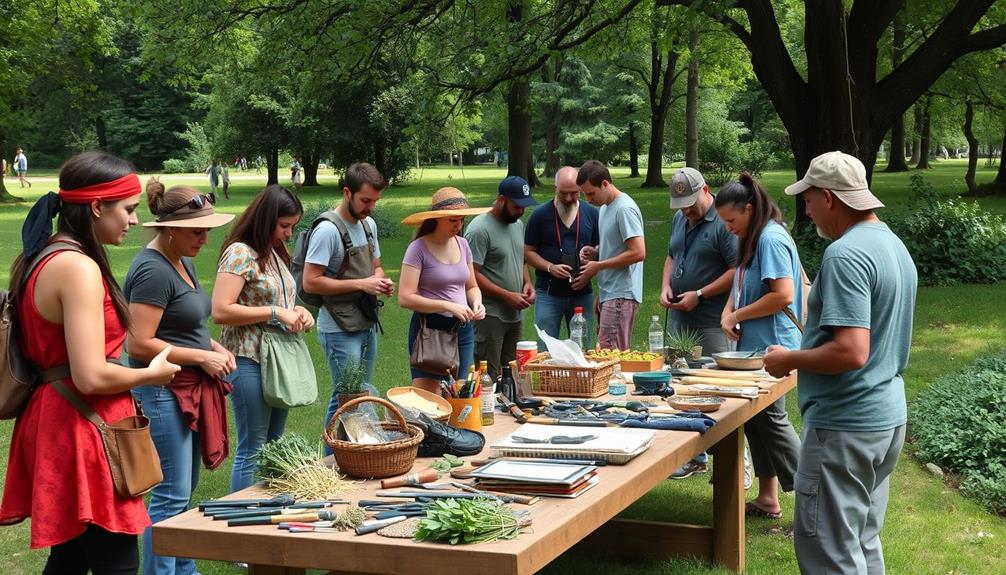
Engaging in community activities not only enriches your prepping skills but also connects you with others who share your interests.
By participating in local events, you open doors to valuable relationships and collaboration.
Here are three ways to get involved:
- Volunteer for Community Projects: Join efforts that align with your prepping goals, like disaster preparedness drills or food drives.
- Attend Workshops: Look for gatherings focusing on essential skills, such as first aid, gardening, or emergency planning.
- Network at Meetups: Engage in conversations with fellow preppers to discover shared objectives and potential partnerships.
Skill-Specific Workshops for Networking

Participating in community activities often leads to discovering skill-specific workshops that can enhance your prepping capabilities and expand your network. These workshops not only boost your knowledge but also let you connect with others who share your interests. Here's a glimpse of what you might find:
| Workshop Type | Skills Learned | Emotional Benefit |
|---|---|---|
| Gardening | Sustainable food production | Fulfillment and hope |
| First Aid | Emergency response techniques | Confidence in crises |
| Self-Defense | Personal safety strategies | Empowerment |
| Foraging | Wild food identification | Connection to nature |
| Homesteading | Self-sufficiency practices | Security for the future |
These gatherings foster bonds and strengthen your prepping community. Don't miss the chance to grow alongside fellow preppers!
Frequently Asked Questions
What Are the Most Common Misconceptions About Preppers?
You might think preppers are paranoid or extreme, but they're often just practical individuals focused on self-reliance. Many prioritize community connections, sharing resources and skills to enhance everyone's preparedness for potential challenges.
How Do I Start Prepping on a Budget?
Like a modern-day Robinson Crusoe, you can start prepping on a budget by prioritizing essential supplies, utilizing local resources, and gradually building your skills. Thrift stores and community workshops can be invaluable for saving money.
What Are Some Beginner-Friendly Prepping Resources?
To start prepping, check online resources like blogs, forums, and YouTube channels. Local libraries often have books on survival skills. Joining community workshops can also provide hands-on experience and connect you with experienced preppers.
Can Prepping Involve Urban Living?
Imagine a city garden thriving amidst concrete. Yes, prepping can thrive in urban living! You can cultivate skills, connect with neighbors, and leverage local resources, turning city challenges into opportunities for self-sufficiency and community resilience.
How Do I Choose a Prepping Group to Join?
To choose a prepping group, consider your goals and interests. Research local options, attend a few meetings, and assess the group's dynamics. You'll want a supportive environment that aligns with your preparedness philosophy and skills.
Conclusion
By connecting with local preppers, you're not just building skills; you're weaving a safety net of support and knowledge. Like a well-tended garden, this community flourishes through shared experiences and insights. Embrace the opportunity to grow alongside fellow enthusiasts, learning from one another and cultivating resilience together. So, take the leap today—reach out, participate, and watch your preparedness blossom into a robust network that stands strong in uncertain times.
Survivalism
Survival Hygiene: Top Wet Wipes Revealed
Choosing the right wet wipes is crucial for survival hygiene; discover which options will keep you clean and healthy in emergencies.
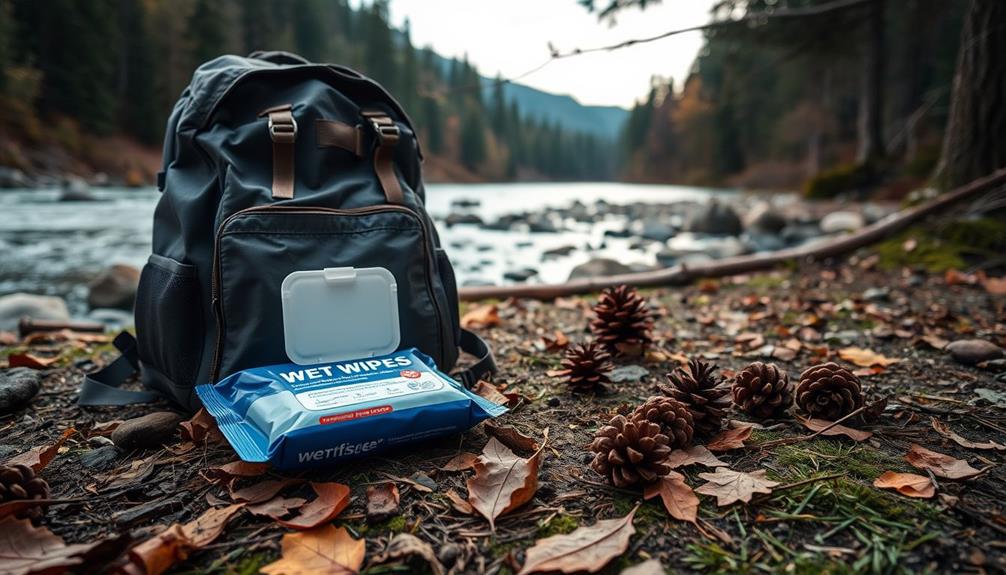
In survival situations, maintaining hygiene is essential, and choosing the right wet wipes can greatly impact your well-being. Consider top picks like Combat Wipes for versatility, Gaia Wipes for eco-friendliness, and Defense Body Wipes for lightweight convenience. Look for wipes that are biodegradable, individually packaged, and effective against germs, ensuring they suit your needs. Don't forget to check the expiration dates and storage tips to keep them effective. If you want to maximize your hygiene strategy in emergencies, there's more information waiting for you that can help you make the best choices.
Key Takeaways
- Combat Wipes and Gaia Wipes are top recommendations for reliable and eco-friendly options in survival hygiene kits.
- WaterWipes XL are ideal for sensitive skin, containing 99.9% purified water for safe personal hygiene.
- Essential features to consider include biodegradability, packaging, disinfecting ability, and user safety for effective hygiene management.
- Proper storage and regular inspections of wipes ensure their effectiveness and prevent microbial growth during emergencies.
- Using wet wipes enhances personal hygiene, reduces illness risk, and supports overall preparedness in resource-limited situations.
Top Recommended Wet Wipes

When it comes to survival hygiene, a few top recommended wet wipes can make all the difference. Combat Wipes stand out for their reliability and versatility, making them ideal for emergency kits.
If sustainability's your focus, Gaia Wipes offer eco-friendly and biodegradable options that minimize environmental impact. For lightweight convenience, Defense Body Wipes come individually packaged, perfect for on-the-go needs.
If you have sensitive skin, WaterWipes XL, composed of 99.9% purified water, provide a gentle option that's safe for infants as well. Each of these choices guarantees you're prepared for hygiene needs in various situations, enhancing your overall survival strategy.
Choosing the right wipes means prioritizing cleanliness, which is essential in emergencies.
Essential Features to Consider
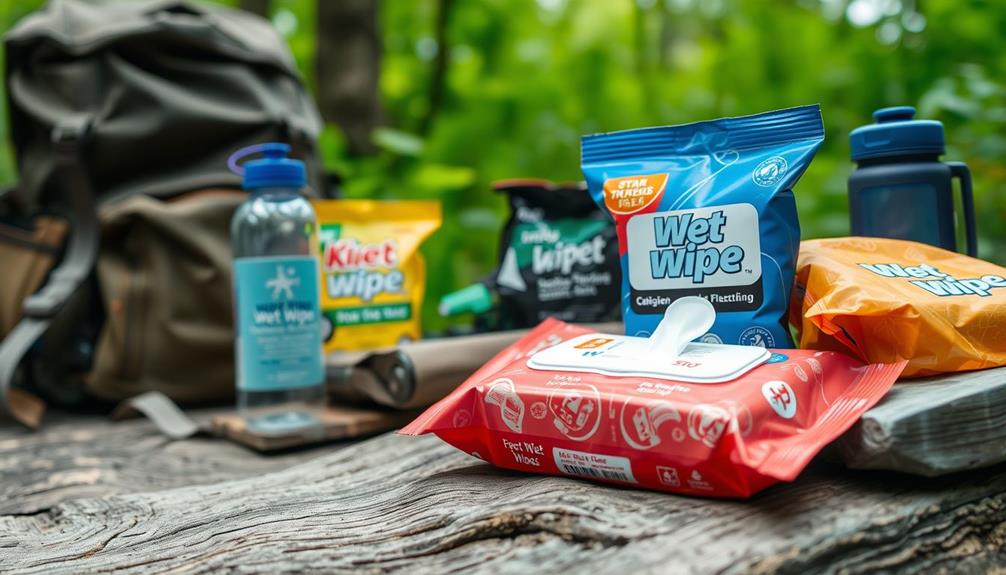
Choosing the right wet wipes involves understanding key features that enhance their effectiveness in survival situations. You want wipes that not only clean but also disinfect, ensuring your hygiene needs are met when resources are limited.
Consider these essential features:
- Environmental impact: Opt for biodegradable options to minimize your ecological footprint.
- Packaging: Resealable packs keep wipes fresh and moist, while individually wrapped options add convenience for on-the-go use.
- Versatility: Select wipes that cater to multiple hygiene needs, from personal cleaning to gear maintenance.
Shelf Life and Storage Tips
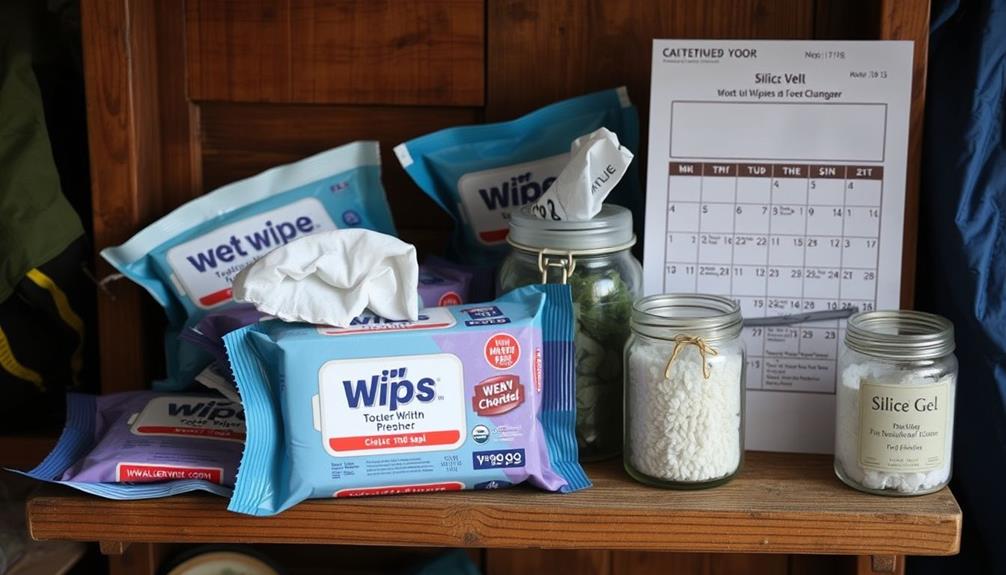
Proper shelf life and storage practices are essential to guarantee your wet wipes remain effective during emergencies.
Most unopened wet wipes last about 2-3 years, so always check the expiration date. Store them in a cool, dark place, away from heat and sunlight to prevent degradation.
It's important to maintain their moisture, so choose resealable packaging when possible. If you notice any changes in texture or smell, it's best to discard them.
Regularly inspect your supplies to verify they're ready for use when needed. By following these tips, you can guarantee your wet wipes are effective for hygiene needs during emergencies, keeping you clean and safe when it matters most.
Composition and Safety Insights
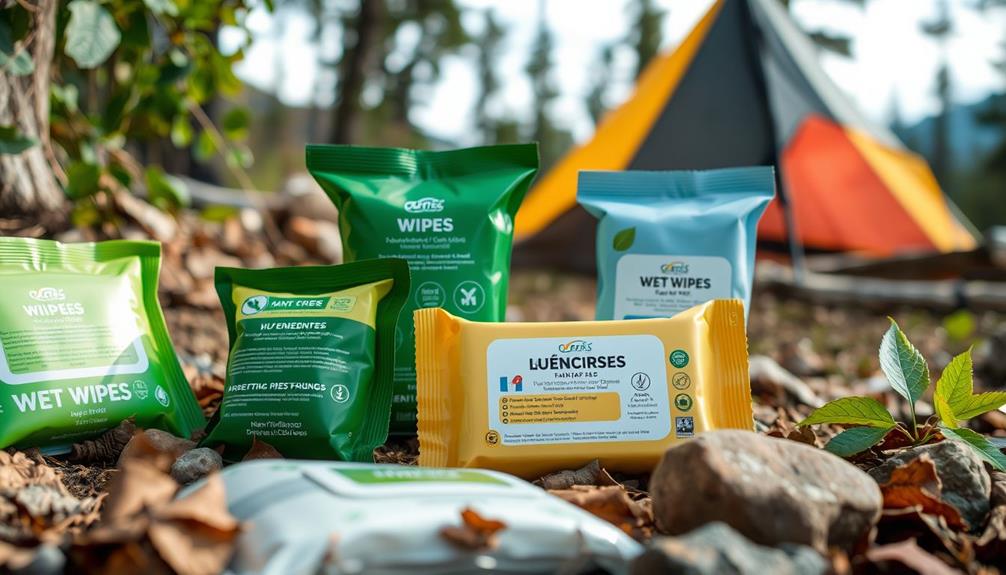
Many people mightn't realize that the composition of wet wipes plays a significant role in their effectiveness and safety. Most wet wipes consist of non-woven cloth and about 90% water, which can promote microbial growth if not stored properly.
It's crucial to check for antibacterial properties, as these are fundamental for hygiene in survival situations. Additionally, some wipes contain preservatives like alcohol, which might limit their versatility and cause allergic reactions in sensitive users.
Consider these key points when choosing wet wipes:
- Verify they've antibacterial properties for effective cleaning.
- Check for any allergens in the ingredient list.
- Store them in cool, dark places to maintain their integrity.
Practical Uses in Survival Situations
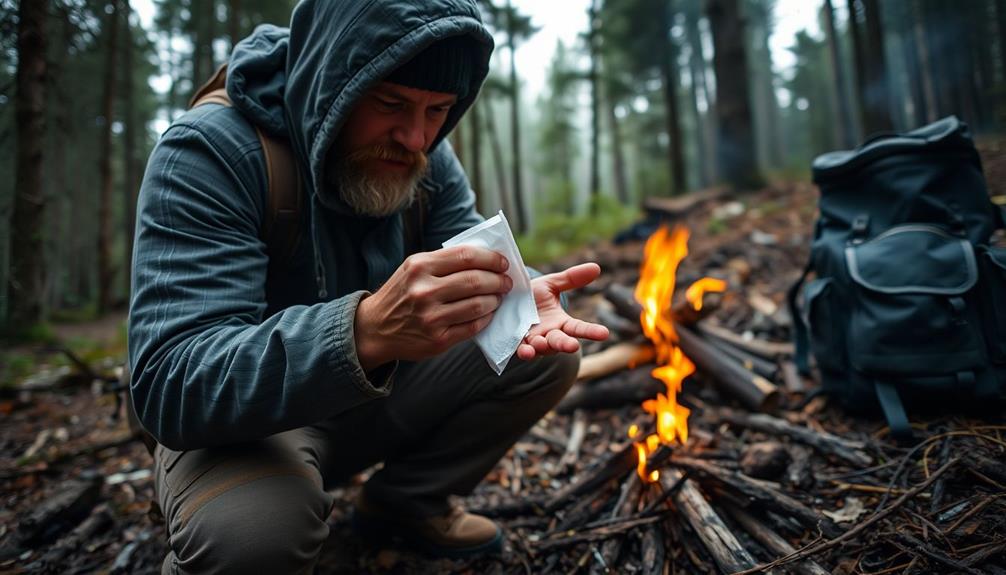
Wet wipes offer multiple practical uses in survival situations, making them an essential item for your emergency kit. You can use them for first aid by cleaning wounds and disinfecting skin to prevent infections.
When water is scarce, they help maintain personal hygiene, reducing the risk of illness. Wet wipes are also great for cleaning gear, allowing you to wipe down equipment and remove dirt or grime, which can improve functionality.
They're lightweight and easy to pack, so you can keep them on hand without taking up much space. Pairing wipes with nitrile gloves enhances your first aid capabilities, ensuring you're prepared for various scenarios in emergencies.
Prioritizing these wipes can make a significant difference in your preparedness efforts.
Importance of Hygiene in Emergencies
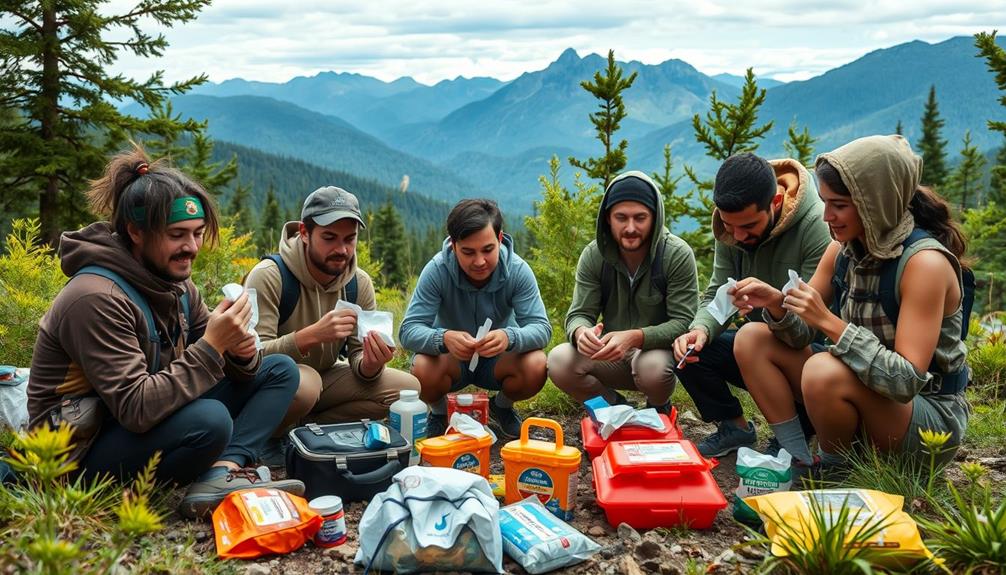
Recognizing the essential role of hygiene during emergencies can greatly influence your health and safety. When disaster strikes, maintaining cleanliness is important. Without proper hygiene, you risk infections, illness, and even worsening your situation. Access to clean water and sanitation may be limited, making hygiene management imperative.
- Prevention of illness: Good hygiene practices can help avoid contagious diseases.
- Psychological well-being: Maintaining cleanliness can boost morale and create a sense of normalcy.
- Enhanced survival: Staying healthy increases your chances of managing emergencies effectively.
Community Engagement Opportunities
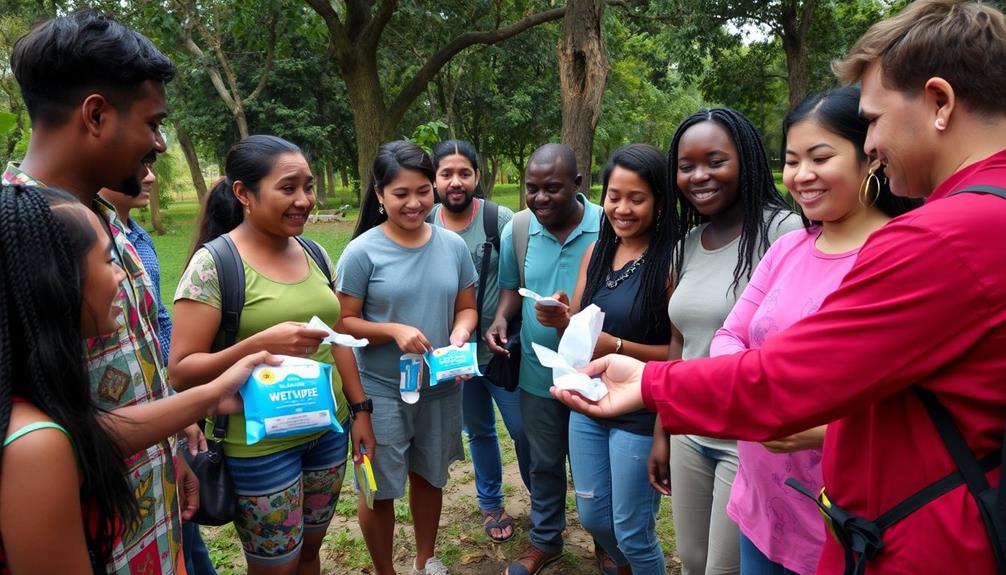
Joining a community of fellow preppers can greatly enhance your knowledge and skills in survival hygiene. Engaging with like-minded individuals allows you to exchange tips, best practices, and product recommendations.
Local volunteer groups often host workshops where you can gain hands-on experience and discuss hygiene strategies with experts. Social media platforms are also great for finding meet-ups and connecting with others who share your interests.
By actively participating in these networks, you'll discover new products and techniques that can improve your preparedness. Plus, collaboration can lead to resource sharing, ensuring you're well-equipped for emergencies.
Strengthening your community ties can heighten your confidence and readiness in maintaining hygiene when it matters most.
Additional Resources for Preppers
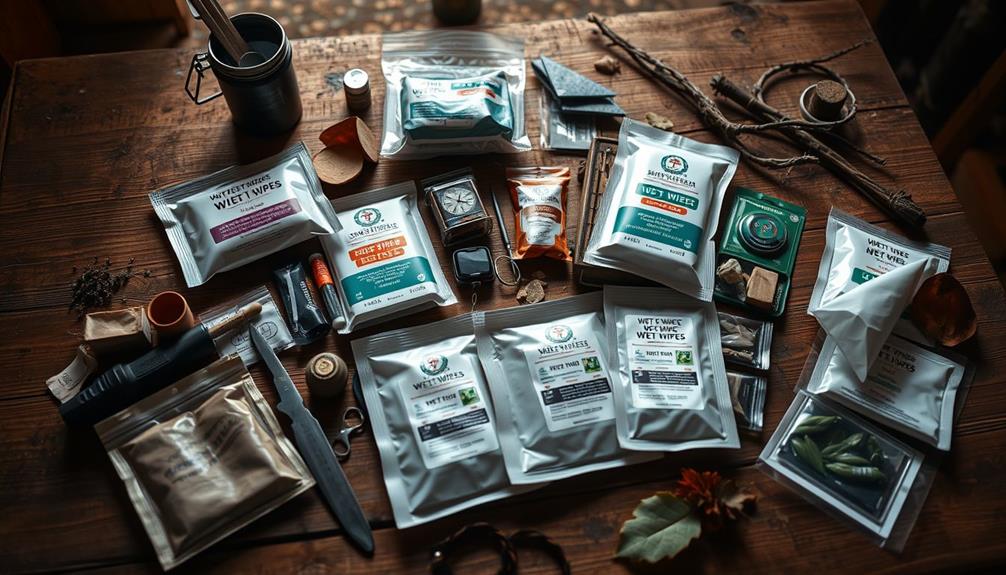
Accessing reliable resources is essential for preppers looking to enhance their survival hygiene knowledge. By tapping into various platforms, you can gather valuable insights and stay informed about the best practices in hygiene management.
Exploring New England camping locations can also provide useful lessons on maintaining cleanliness in outdoor settings. Here are some resources worth exploring:
- Online communities: Join forums and social media groups where fellow preppers share tips and product reviews.
- Survival blogs and podcasts: Listen to expert advice that covers sanitation techniques and product evaluations.
- Workshops and training: Participate in events to develop hands-on skills in hygiene and sanitation.
Utilizing these resources will empower you to make informed decisions, ensuring you're prepared for any situation while maintaining ideal hygiene.
Your preparedness should always include reliable information!
Eco-Friendly Wet Wipe Options
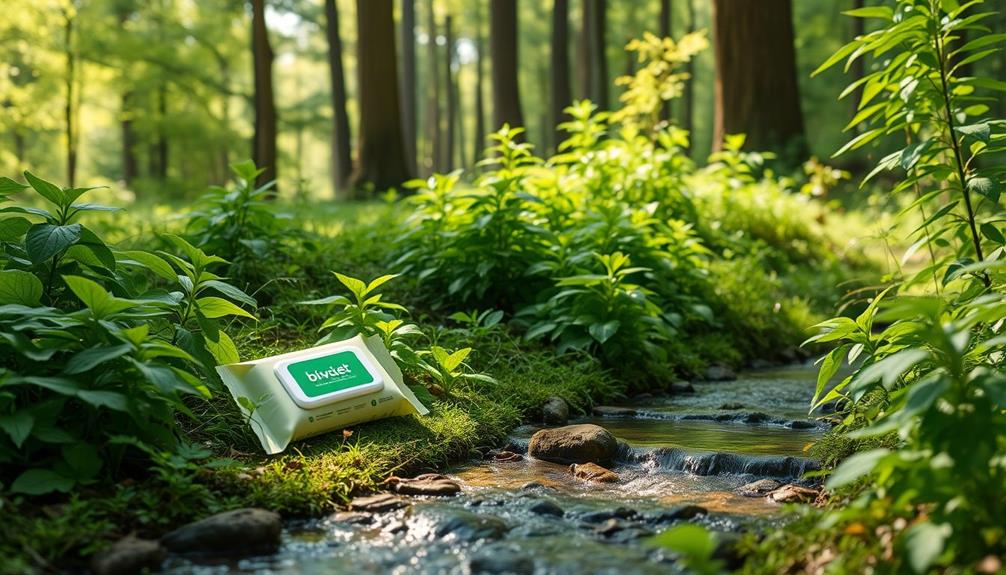
As you build your survival hygiene kit, consider the impact of your choices on the environment. Eco-friendly wet wipe options are becoming increasingly available, allowing you to maintain hygiene without harming the planet.
Look for biodegradable wipes made from natural materials, which break down more easily than traditional options. Brands like Gaia Wipes focus on sustainability, while others may feature certifications like FSC or biodegradable labels.
Choosing wipes with natural ingredients guarantees you're making responsible hygiene choices. By opting for these eco-friendly alternatives, you reduce your ecological footprint and contribute to a healthier environment.
Plus, as consumer demand rises, more brands are likely to offer sustainable choices, making it easier for you to find the right products for your kit.
Responsible Disposal Practices
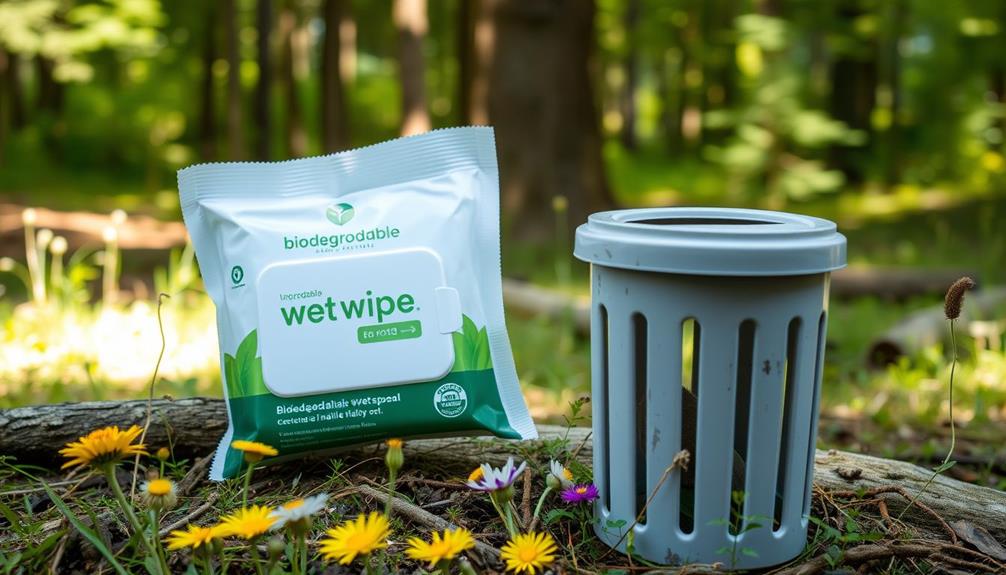
Responsible disposal practices for wet wipes are vital to minimize environmental harm and maintain sanitation. When you use wet wipes, it's important to dispose of them correctly. Flushing wipes can cause plumbing problems and contribute to waterway pollution. Instead, always throw them in the trash.
Here are some key practices to follow:
- Educate Yourself: Familiarize yourself with local waste management guidelines to guarantee proper disposal.
- Choose Wisely: Opt for biodegradable or eco-friendly wipes when possible to lessen your environmental footprint.
- Promote Alternatives: Advocate for reusable cleaning cloths to reduce waste and promote sustainable hygiene practices.
Frequently Asked Questions
Can I Use Wet Wipes on My Face Safely?
Yes, you can use wet wipes on your face safely, but make sure they're designed for facial use. Check for gentle, alcohol-free formulas to avoid irritation, especially if you have sensitive skin.
How Do I Choose Wipes for Children?
When choosing wipes for children, consider their sensitivity, look for hypoallergenic options, and check for fragrance-free ingredients. Ascertain the wipes are gentle, safe, and suitable for their delicate skin to prevent irritation.
What Are the Best Wipes for Outdoor Activities?
When choosing wipes for outdoor activities, look for durable, biodegradable options that are lightweight and easy to pack. Consider wipes with antibacterial properties to keep you clean and fresh during your adventures.
Are There Wet Wipes Designed for Pets?
Sure, because nothing screams "I care" like cleaning your pet's paws with wipes made for humans! Seriously, though, there are indeed wet wipes designed specifically for pets, catering to their unique hygiene needs.
How Can I Make My Own Wet Wipes at Home?
To make your own wet wipes at home, combine water, a gentle soap, and essential oils in a container. Soak cloths in the mixture, ensuring they're well saturated, then store them in a resealable bag.
Conclusion
In survival situations, "an ounce of prevention is worth a pound of cure." Keeping clean with the right wet wipes not only boosts your hygiene but also your confidence in facing challenges. By selecting quality products and considering eco-friendly options, you're taking a proactive step towards ensuring your well-being. Don't underestimate the power of cleanliness; it can make all the difference when you're maneuvering through the unpredictable. Stay prepared, stay clean, and embrace the journey ahead!
-

 Survivalism4 months ago
Survivalism4 months agoMeal Preppers Near Me: Find Local Services and Tips!
-
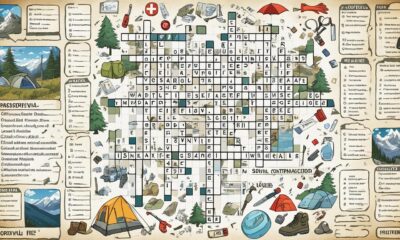
 Survivalism4 months ago
Survivalism4 months agoPreppers Pack Crossword: Test Your Knowledge of Survival Gear!
-
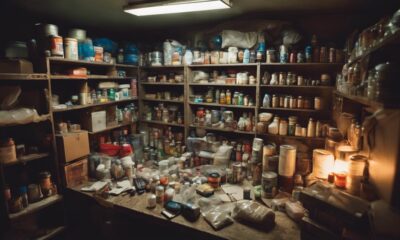
 Survivalism4 months ago
Survivalism4 months agoInside the Secret World of Doomsday Preppers: Are You Ready?
-

 Survivalism4 months ago
Survivalism4 months agoAI Doomsday Scenario: Understanding the Potential Risks
-

 Vetted4 months ago
Vetted4 months ago15 Best Satellite Phones for Preppers: Stay Connected Anywhere, Anytime
-
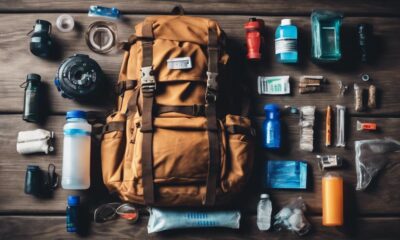
 Survivalism4 months ago
Survivalism4 months agoPreppers List of Items: Essential Gear for Every Survivalist!
-

 Survivalism4 months ago
Survivalism4 months agoFlood Survival Tactics: Essential Tips to Stay Safe
-
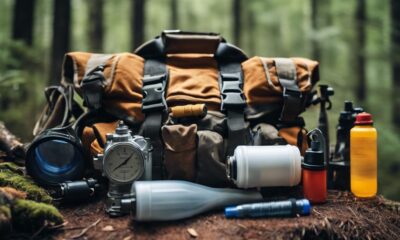
 Vetted3 months ago
Vetted3 months ago15 Most Durable Survival Gear Essentials for Ultimate Preparedness




